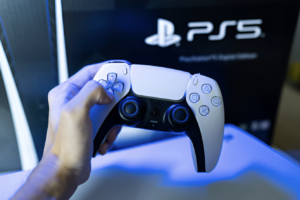If you’ve ever asked yourself why is PlayStation Network slow while trying to play your favorite games, you’re not alone. Many PlayStation users experience lag, slow downloads, or even complete connectivity loss. Understanding the reasons behind this issue can help in resolving it. Whether it’s due to network congestion, server-side issues, or local connectivity problems, a variety of factors can impact your gaming experience.
According to Lifewire, one common reason for slow speeds is your router’s distance from your console. Router issues, weak Wi-Fi signals, and overloaded networks can all contribute to slow PlayStation Network speeds. Additionally, as BleepingComputer notes, PSN often faces global outages due to maintenance or server overload, which can temporarily degrade network performance.
Common Causes of Slow PlayStation Network Performance
There are several reasons PlayStation Network can be slow, some related to user-side issues and others linked to PlayStation servers themselves:
- Server Overloads During Peak Times: During popular gaming hours, PlayStation Network servers may experience high traffic, leading to slower download speeds and lag.
- Network Congestion: With many users online at the same time, particularly during major game releases or updates, the network becomes congested, causing delays.
- PlayStation Network Outages and Maintenance: Sometimes, Sony conducts scheduled maintenance or faces unexpected outages, which can cause network slowdowns.
How User-Side Issues Impact PlayStation Network Speeds

Slow PSN speeds aren’t always the fault of PlayStation Network. Many factors on the user’s end can contribute to connectivity issues:
- Router or Modem Problems: If your router or modem is malfunctioning, it can severely impact your gaming experience. Resetting your modem or router can often fix the issue.
- Home Network Overload: Streaming movies or downloading large files on other devices while gaming can affect your PSN speed. Make sure no other devices are using bandwidth-heavy applications while you’re gaming.
- Wi-Fi Interference or Weak Signal: If your console is far from your router, your Wi-Fi connection might be weak, leading to slow PSN speeds.
PlayStation Console Settings and Their Effect on Network Speed
The settings on your PlayStation console can also contribute to slow speeds:
Advertisement
- Automatic Updates and Background Downloads: These can hog bandwidth and slow down your connection. Disabling automatic downloads can help improve speed.
- Incorrect DNS Settings: Optimizing your DNS settings can sometimes provide a boost in speed. Adjusting your DNS settings to use a faster, more reliable service can improve your overall connectivity.
- Older Console Models: Older PlayStation models may have outdated network components, limiting their ability to handle faster connections.
External Factors Impacting PlayStation Network
Even if everything is optimized on your end, external factors like global outages and ISP throttling can cause PlayStation Network to run slowly.
- Global PlayStation Network Outages and Downtime: Outages are not uncommon. At times, PlayStation Network faces global outages where all users experience connectivity issues. You can check the PlayStation Network status page to see if an outage is impacting you.
- ISP Throttling and Data Limits: Some internet service providers (ISPs) may throttle your connection during peak usage times or after you’ve hit a data cap, slowing your PSN speeds.
Steps to Diagnose and Fix Slow PlayStation Network Speeds
If you’re facing slow PSN speeds, there are steps you can take to diagnose and fix the problem:
- Check the PlayStation Network Status Page: Before troubleshooting, check if PlayStation Network is down by visiting the official PlayStation status page.
- Restart Your Router and Console: Often, simply restarting your router and PlayStation console can solve minor connectivity issues.
- Change DNS Settings for Faster Connectivity: Consider changing your DNS settings to a more reliable provider such as Google’s DNS (8.8.8.8 and 8.8.4.4) for better performance.
- Ensure Minimal Network Traffic During Gaming: Ensure no other devices on your network are downloading large files or streaming in HD while you are gaming.
Preventing Future Slowdowns on PlayStation Network
To prevent future slowdowns, you can take these proactive measures:
- Regularly Check for Network Updates: Regularly update your console’s firmware and ensure your router is running the latest software.
- Optimize Router Placement and Network Settings: Position your router in a central location and ensure it’s not obstructed by walls or large objects. Consider using a wired connection for better speed.
FAQs: Why is PlayStation Network Slow?
Here are some common questions people ask about slow PlayStation Network speeds:
- Why is my PlayStation Network so slow right now?
This could be due to high traffic, server issues, or problems with your internet connection. Always check the PlayStation Network status page first. - How do I speed up my PlayStation Network connection?
Restart your router, adjust your DNS settings, and ensure no other devices are using your network bandwidth. - Does PlayStation Network throttle download speeds?
Sony does not throttle speeds directly, but your ISP might. Check if your ISP has a data cap or if throttling is common during peak times. - Are there global outages affecting PlayStation Network?
Yes, sometimes PlayStation Network experiences global outages. Always check the PSN status page to confirm.
Conclusion: Troubleshooting PlayStation Network Issues
In conclusion, PlayStation Network speeds can be affected by many factors, ranging from server-side issues to your home network setup. By diagnosing the root cause and following the steps mentioned, you can often resolve the issue and enjoy a smooth gaming experience.
Advertisement